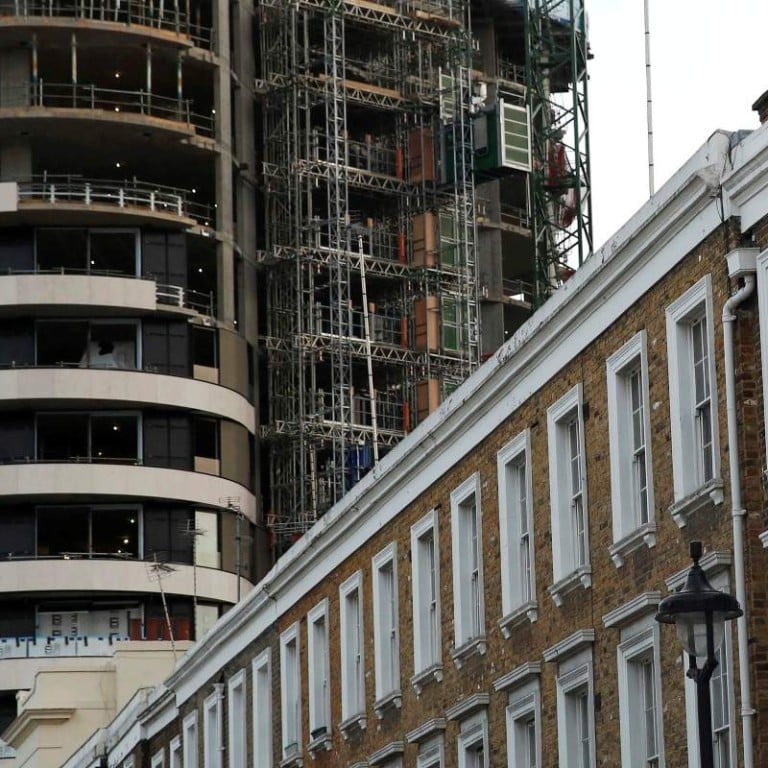
Chinese investors build up expertise in London
Despite recent deals, institutional investors still have plenty of firepower and could round out their approach in Britain with debt positions
For global capital on the hunt for a home, the solidity of bricks and mortar in a mercurial monetary environment has been irresistible. These days of course, bricks and mortar are more likely to be "glass and steel", but tangible assets with cash flows attached continue to be highly attractive to institutional investors.
London, like other global gateway cities, has pulled in waves of international investors who like the depth of its investment stock, ease of transacting, and liquidity.
Hong Kong families have been significant traders in London property for generations. The mainland Chinese aspect to this, however, is relatively recent.
Early Chinese investment from sovereign capital and banks buying assets for occupation has been followed by developers acquiring prominent sites in Vauxhall, Greenwich Peninsula, Royal London Docks and Wandsworth.
Their expertise lends itself to fringe areas with the potential to become core, but in need of a transformational investment approach. Their timing has also been good, capitalising on London's growing economy, housing shortage and more open-minded approach of tenants.
Now it is the turn of Chinese institutions to take significant stakes in London real estate. Simplified foreign exchange administration procedures and permission from the Chinese government to allow intermediate holding companies to be established for the purposes of overseas investments have suddenly opened up global real estate to Chinese institutions, and their enormous firepower is interesting market observers.
The investors themselves will be acutely aware that while they are prepared to make some big investments, they must not "become" the market and destroy liquidity. The consensus view is that asset values in London are currently very high, but for an institutional investor with long-term horizons, demand remains.
Whereas opportunity funds are now largely fishing in different pools, conservative institutions see an attractive pickup in real estate over their other traditional asset classes. A full price may be worth paying on a first deal in order to gain market experience and a platform from which to hunt for future investments, so non-financial objectives may also influence decisions.
The real estate world often features flamboyant individuals. The Chinese approach has been with no fanfare at all. The high quality of assets acquired, such as Great Winchester House, Lloyd's Building, Chiswick Park, 50 Bank Street, Tower Place and Fosse Park, speaks for the strategy. We believe that Chinese financial firepower is far from exhausted. And now, interestingly, as the battle for ownership of Canary Wharf plays out, the stake held by China Investment Corp in Songbird Estates is proving decisive.
There have been some smart moves to team up with experienced capital in the market, recognising that real estate is also a relationship game. In some instances, new investors have teamed up with vendors, leaving a stake in the deal - as was the case when China Life Insurance acquired the Clifford Chance headquarters at 50 Bank Street. Others have hired excellent local staff to lead the charge quietly on their behalf.
What are the risks to this flow? Britain has an election coming up, and a change of government may dampen the warm welcome that Britain has offered to Chinese capital.
But, as George Zhao, of King & Wood Mallesons Beijing, said at a recent seminar: "Mature Western countries have sound legal systems and institutions that have worked well, by and large, for centuries. Voting events are part of the system. We don't see any particular political event, such as an election or referendum, as a major issue."
With Chinese institutional investors having established comfort levels, we expect to see further moves outwards from core real estate, both regionally, and accessing the asset class from different angles.
We have seen other institutional investors, such as US, German and Korean life insurance companies access the property market by taking debt positions in the sort of assets they are happy to own, seeing an attractive risk return on low-leverage debt, and favouring the stable, long-term returns achieved from lending.
Since the banking crisis, European markets have opened up to new debt investors and institutions, who have been a great beneficiary of this process. This has been welcomed both by real estate owners and the British regulators, who like seeing more diversity of capital in lending.
If Chinese investors also start to enter the market through the debt side, China will be a truly rounded and major participant in British real estate.
